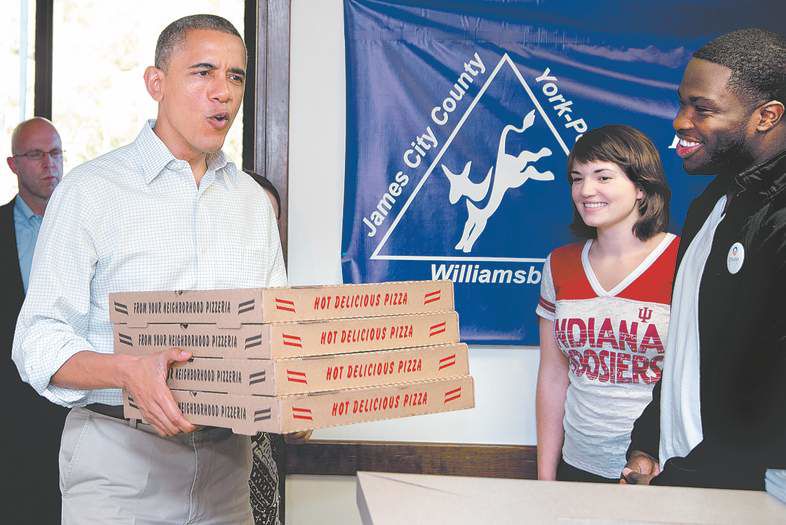5 things Obama and Romney should consider for 2nd debate
Published 5:00 am Monday, October 15, 2012

- 5 things Obama and Romney should consider for 2nd debate
The most important time for the presidential candidates this week may be after Tuesday.
True, the 90 minutes that they spend in the town hall-style debate on Long Island on Tuesday night could be a game changer if one candidate performs terribly, like President Barack Obama was perceived to have done in their first debate on Oct. 3.
But if this debate is seen to be more of a draw, then the winner will be decided in the hours and days after — with perceptions shaped by whichever campaign manages the post-debate time more effectively.
Here are five aspects both campaigns must consider:
1. Twitter.
In the old days (meaning four years ago), campaigns would sent out emails to reporters during the debate, hoping to shape their coverage afterward.
Years earlier, runners would drop printed news releases at each desk in the cavernous filing center where reporters were working.
Now, none of that is fast enough. Both campaigns have armies of supporters tweeting as soon as the debate begins. They are armed with hashtags and snarky observations as they seek to guide the early reaction to the debate.
In the vice presidential debate Thursday, Republicans quickly seized on Vice President Joe Biden’s grin. The week earlier, they were tweeting about Obama’s listlessness, even before the debate ended.
On Tuesday, Democrats will be ready to tweet about what they hope will be a re-energized president. And Mitt Romney’s team will be standing by to do the opposite. Neither side can control Twitter and its millions of users. But they can try to influence it.
2. The spin room.
Just because Twitter is faster does not mean the campaigns can forget about the journalists.
The old-fashioned spin room — which used to be in a separate room from the reporters — is now just a designated area where campaign officials and surrogates eagerly make themselves available to reporters.
After Obama’s performance in the first debate, Mitt Romney’s spinners were out in force, grinning from ear to ear. Obama’s advisers sulked out late, hardly able to contain their gloom.
The goal on Tuesday will be for Democrats to argue that Obama was more forceful, without veering into Biden-like territory. Both campaigns will try to shape the newspaper stories and the early-morning conversations, which can help to set the tone for the rest of the day.
3. The candidates.
The best way to slow down a negative narrative — or enhance a helpful one — is for their campaigns to use the candidates themselves quickly after a debate.
After Obama’s performance on Oct. 3 rattled his supporters, the Democratic campaign followed through with two huge, preplanned rallies. Despite the damage he had done to his campaign the night before, Obama was feisty and aggressive. That helped dampen the criticism a bit.
Likewise, Romney added a brief campaign stop in Colorado that morning, showing off his energy and enthusiasm coming off a good night.
But there are risks. During the nominating campaign, Romney often stepped on his own success by making a gaffe the morning after a good debate or a primary night victory. Both candidates will need to avoid making any news that might take away from a victory.
4. The ads.
As effective as free media is, the campaign is still being waged in the seven or eight battleground states. Most of the voters there are not likely to attend a rally this week. However, they will see the ads produced by the candidates.
Obama produced an attack ad just hours after his debate with Romney, and another — the famous Big Bird ad — a few days later. Romney went up quickly with ads promoting his five-point economic plan, to reinforce the idea that he has provided specifics to voters.
Bet on more ads — quickly — after Tuesday night’s contest.
5. More debate prep.
One big challenge for both campaigns will be the short amount of time between Tuesday’s debate and the final one, which will take place the following Monday. The campaigns will need to try to shape perceptions from the first, even as they prepare for the next.
Both campaigns have shown a willingness to sequester their candidate for large chunks of time as they prepare. Obama spent the weekend in Williamsburg, Va., trying to get ready. Romney has continued to spend parts of each day in prep sessions.
No matter how much the candidates and their staff try to respond to the aftermath of Tuesday’s debate this week, they can’t forget the reality: Another is right around the corner.
If you watch
What: Second presidential debate between Barack Obama and Mitt Romney (town hall format)
When: 6 p.m. Tuesday
Watch live: ABC, NBC, CBS, Fox, CNN, Fox News, MSNBC, C-SPAN






